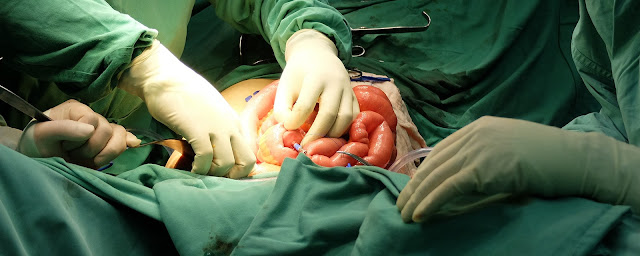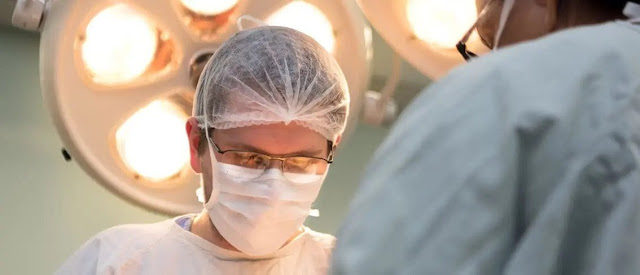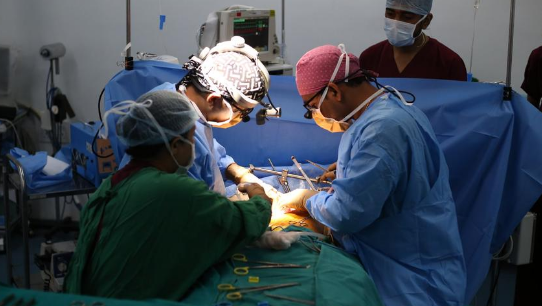Colorectal Surgery- Four Things You Need to Know
Colorectal surgery is frequently a life-saving operation for those suffering from significant illnesses involving their colon, rectum, or anus regions. This surgical method is a highly specialised profession that aims to give the best effective therapy for a variety of colorectal disorders, including colorectal cancer, inflammatory bowel disease, and rectal prolapse, among others. Here, we'll go over four important facts concerning colorectal surgery.
1. Colorectal Surgery Explained: What Is Involved?
Colorectal
surgery refers to a wide range of surgical treatments used to repair damage to
the colon, rectum, or anus caused by disorders of the lower digestive system
such as cancer, diverticulitis, and inflammatory bowel disease (Crohn's disease
and ulcerative colitis). Laparoscopic operations, robotic surgeries, transanal
surgeries, and standard open procedures are among the techniques used. These
treatments are carried out using the most recent technology developments,
resulting in less discomfort, shorter hospital stays, and faster recovery
periods for patients.
2. Why is Colorectal Surgery Required?
While
some colorectal diseases may be treated with medicine or lifestyle
modifications, others need surgical intervention to relieve symptoms, restore
function, and, in many cases, save lives. Colorectal cancer, the biggest cause
of cancer-related deaths globally, is frequently only adequately treated
surgically by removing the malignant mass. Diverticulitis, gastrointestinal
haemorrhage, bowel blockage, rectal prolapse, and haemorrhoids may also require
surgical intervention in severe stages. Before starting, a reputable healthcare
physician would always thoroughly clarify the need for surgical intervention
and address any patient concerns.
3. Colorectal Surgery Preparation: What to
Expect?
Colorectal surgery in Delhi requires careful planning in order to be effective. This comprises a number of preliminary stages, some of which may include:
- Preoperative screening and testing to assess
your general health and surgical risk.
- A thorough explanation of the intended surgical procedure, including any risks or potential consequences.
- Bowel preparation, to cleanse the colon and
minimise infection risk.
- Dietary adjustments may be recommended to ensure that your body is best prepared for surgery.
- Some medications may need to be discontinued or modified in the days leading up to surgery.
- It is critical that you maintain open contact with your healthcare team, understand what to expect, and rigorously follow all issued directions.
4. Colorectal Surgery Recovery - The Path to Wellness
Post-operative
care is critical for a speedy recovery and the avoidance of problems. The
length of recovery depends on the type of surgery, the patient's overall
health, age, and the specific illness being treated. Pain treatment, gradual
resumption of regular food, physical activity, wound care, and follow-up
consultations are all common parts of rehabilitation. It's critical to
carefully follow all post-op care recommendations and to contact your
healthcare practitioner if you notice any unusual symptoms. A possible change
in bowel habits may be noticed, particularly following colorectal surgery. A
referral to a dietician or nutritionist in such cases might be beneficial in
managing dietary adjustments to maintain a healthy gut.
Surgical Procedures for the Colorectal diesease
In
order to provide the best possible care for our patients, we provide a wide
range of innovative therapies at our colorectal
surgery in Delhi. Among the most common colorectal procedures we do are:
1. Laparoscopic Colorectal Surgery: This is a minimally invasive surgery with fewer incisions and faster recovery times, resulting in less pain and a better overall outcome for patients.
2.
Robotic-Assisted Colorectal Surgery:
This novel technique combines the precision and minimally invasive features of
laparoscopic surgery with cutting-edge robotic technology, allowing our
surgeons to perform complex colorectal surgeries with more accuracy and
control.
3.
Oncologic Colorectal Surgery: Our colorectal surgeons are well-versed in cancer
operations for various colorectal cancers, including colon, rectal, and anal,
with bowel function preserved wherever possible.
4.
IBD Surgery: In severe cases of inflammatory bowel disease, such as Crohn's
disease or ulcerative colitis, our doctors may recommend surgery to provide
long-term therapy and a better quality of life.
Conclusion
Colorectal surgery, while challenging, has
transformed the way we treat a variety of major colorectal disorders, typically
leading in better results, less discomfort, and shorter recovery periods for
patients. Understanding the operation, preparation, and recovery process, as
well as working closely with a specialised healthcare team, are critical stages
towards regaining health and wellness. Our objective is to make you feel at
ease, informed, and supported during this journey, which will go a long way
towards achieving a good surgical outcome.



Comments
Post a Comment